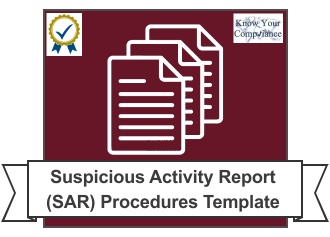-
×
 Suspicious Activity Reporting Procedures
1 × £15.00
Suspicious Activity Reporting Procedures
1 × £15.00
Subtotal: £15.00
 There have been so many amendments made to UK legislation post Brexit. As a result, there has been moutning confusion over which version is the current one. If you are unsure about the Money Laundering Regulation changes post Brexit, this article is for you!
There have been so many amendments made to UK legislation post Brexit. As a result, there has been moutning confusion over which version is the current one. If you are unsure about the Money Laundering Regulation changes post Brexit, this article is for you!
The Money Laundering, Terrorist Financing and Transfer of Funds (Information on the Payer) Regulations 2017 (MLR17) have been revised to better suit the UK’s anti money laundering framework.

In 2019, a number of amendments were decided upon for the MLR17 to implement the 4MLD/5MLD changes to the EU directive. Consequently, the Money Laundering and Terrorist Financing (Amendment) Regulations 2019 came into force on 10 January 2020. These introduced a new document to be read alongside the existing Regulations.
To prepare for the Brexit transition period, the UK government implemented the Money Laundering and Terrorist Financing (Amendment) (EU Exit) Regulations 2020 in October 2020. This is the statutory instrument that updated the existing money laundering legislation.
(EU Exit) Regulations 2020An example of the amendments that span all 3 legislative documents: –
Some of the changes to anti money laundering legislation may be minor. However, following an outdated version can pose serious risks for a business. You may think you have adequate AML controls and processes in place, only to find out that you are in fact missing key measures.
Customer due diligence is an essential part of preventing and monitoring money laundering. It is imperative that identities are accurately verified and validated.
The 2020 (EU EXIT) instrument implemented further changes, some of which came into force on 6th October 2020. These included (but are not limited to):-
Changes came into force in April 2021 relating to trust information. This must now be provided to the Commissioner for inclusion on the register of beneficial ownership. Also, any additional trusts must be included on the register as well.
Changes came into force in March 2022 extending Regulation 30A (requirement to report discrepancies in registers). This Regulation now extends to express trusts as well as companies.